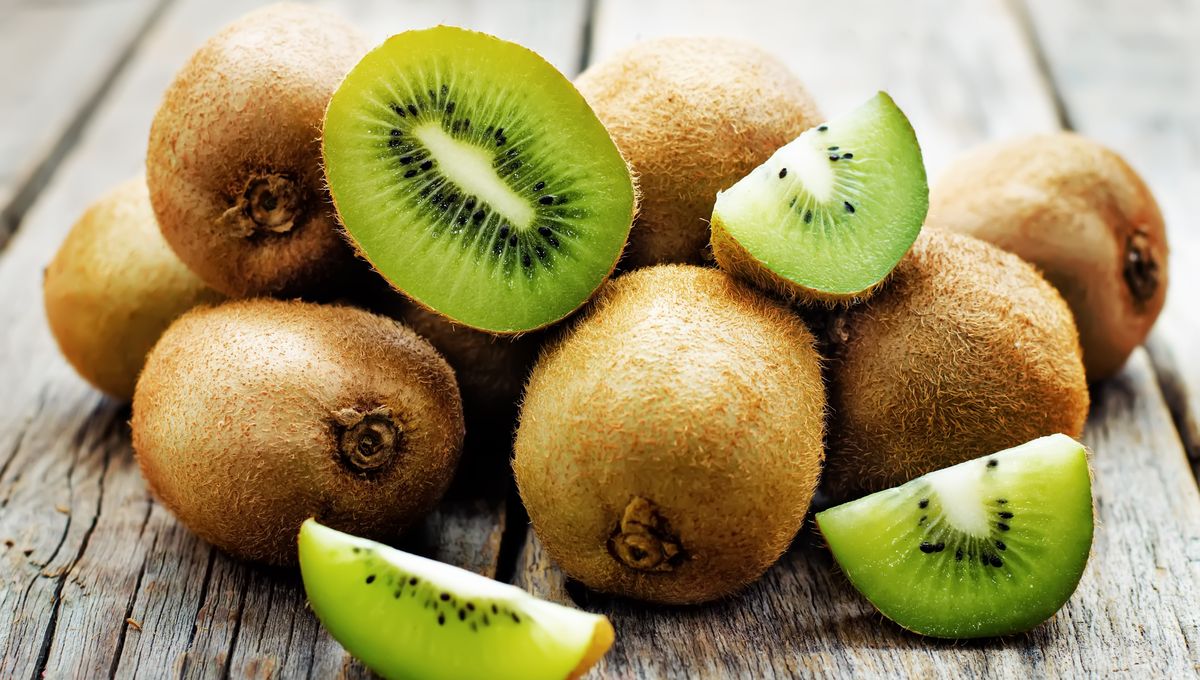
The unique skin of kiwi fruit might not be to everyone’s taste, but these coarse hairs, called trichomes, can be very beneficial both to the plant and to your health.
The kiwi’s luscious locks work as a defense mechanism to prevent insects from being able to land on the fruit’s uneven surface. It also helps retain moisture and protect the fruit from sunlight in the plant’s tropical native climate of China and Taiwan.
But while it’s clear these hairs serve an evolutionary advantage for the health of the plant, are we really gaining anything from scarfing down all that hair?
The short answer is yes, eat that skin! Kiwi skin is arguably more nutrient-rich than the fruit itself. Eating the skin along with the fruit increases its fiber content by 50 percent, folates by 32 percent, and vitamin E by 34 percent. There are, in fact, more antioxidants, namely vitamins C and E, in the skin than there are in the flesh.
Consuming any fruit or vegetable skin, however, does come with the risk of pesticide contamination. The Environmental Working Group’s (EWG) Shoppers Guide to Pesticides in Produce is a list formulated yearly that ranks the pesticide contamination of 46 popular fruits and veg.
The produce samples are tested by the Food and Drug Administration (FDA) and United States Department of Agriculture (USDA) after being cleaned and prepared for consumption. The list’s 2023 edition ranks kiwis in the category “clean 15”, meaning they’re a part of the group with the lowest levels of pesticide contamination. But to lower the risk of pesticides on your produce even more, be sure to thoroughly wash your fruit and veg, and where possible opt for organic produce.
Despite the clear benefits of eating kiwi skin, it still might not trump that gnarly texture. Due to the hair’s calcium oxalate crystals causing microscopic scratches inside the mouth, kiwi skin can act as an irritant when the fruit’s acid comes into contact with these cuts.
The presence of higher levels of oxalates in the fruit’s skin can also make it a risk for people with a history of kidney stones as oxalates bind with calcium in the body, potentially exacerbating the condition.
Kiwi allergies are also quite common and of the 13 different allergens identified in kiwi, five are defined as major. Oral allergies can occur in those with birch pollen or latex allergies as the proteins in kiwi are similar in shape. This can cause mild to severe irritation in the mouth and in some cases anaphylaxis.
However, if you don’t have a history of kidney stones or kiwi allergies, and if you’re a bit of a glutton for punishment, then maybe don’t go peeling your kiwis.
The content of this article is not intended to be a substitute for professional medical advice, diagnosis, or treatment. Always seek the advice of qualified health providers with questions you may have regarding medical conditions.
All “explainer” articles are confirmed by fact checkers to be correct at time of publishing. Text, images, and links may be edited, removed, or added to at a later date to keep information current.
Source Link: Is Kiwi Skin Safe To Eat?